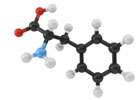Rare genetic disorder highlights importance of selenium

A rare genetic disorder has highlighted the importance to human health of selenium, a little known trace element. The discovery, reported today in the Journal of Clinical Investigation, may also shed light on the role of free radicals - highly reactive molecules which can cause cellular damage - in the body.
An international team of researchers at the University of Cambridge, funded principally by the Wellcome Trust, studied two individuals who were first identified on the basis of abnormal thyroid function, but subsequently found to also have low levels of selenium in the body.
Selenium is found in relatively high doses in foods such as Brazil nuts. Although toxic in large amounts, as a trace element it is essential to cellular functions in animals, including humans. In the body, it is incorporated as the amino acid selenocysteine into some proteins (known as selenoproteins).
The individuals identified by the researchers were found to have a particular variant of the gene SECISBP2 which meant that their bodies were unable to produce most of the 25 known human selenoproteins. As a consequence of selenoprotein deficiencies in particular tissues, they developed disorders such as male infertility and muscular dystrophy (muscle weakness).
Other features of the disorder were due to loss of a subset of selenoproteins that are antioxidant enzymes. When the skin is exposed to ultraviolet light, free radicals are produced in the body. Ordinarily, our bodies produce antioxidants which neutralise the free radicals, but an individual with the SECISBP2 variant lacking such defence, was markedly oversensitive to ultraviolet light.
The function of many selenoproteins is unknown, but the researchers hope that this discovery will help identify potential problems in patients in the future, perhaps via the unusual combination of abnormal thyroid function and other disorders
Professor Krishna Chatterjee, who led the research, says the findings may point to new ways to treat the disorder.
"Trials of selenium supplementation in patients with selenoprotein deficiency have not been beneficial," he explains. "However, we have shown that these patients have elevated levels of free radicals and so treating them with antioxidants may prove to be more effective."
Professor Chatterjee also believes that studying the patients affected by selenoprotein deficiency may provide clues to the short- and longer-term consequences of having raised levels of free radicals.
"It has been suggested that excess free radicals can accelerate ageing or increase cancer risk. We hope that studying these patients will help us understand whether or not this is the case and how effective antioxidant therapies are at limiting free radical damage."
The research was supported by the Wellcome Trust, the National Institute for Health Research (NIHR) Cambridge Biomedical Research Centre, the Medical Research Council and the Muscular Dystrophy Campaign.
More information: Schoenmakers E et al. Mutations in the selenocysteine insertion sequence - binding protein 2 gene lead to a multisystem selenoprotein deficiency disorder in humans. J Clin Invest 15 Nov 2010.















